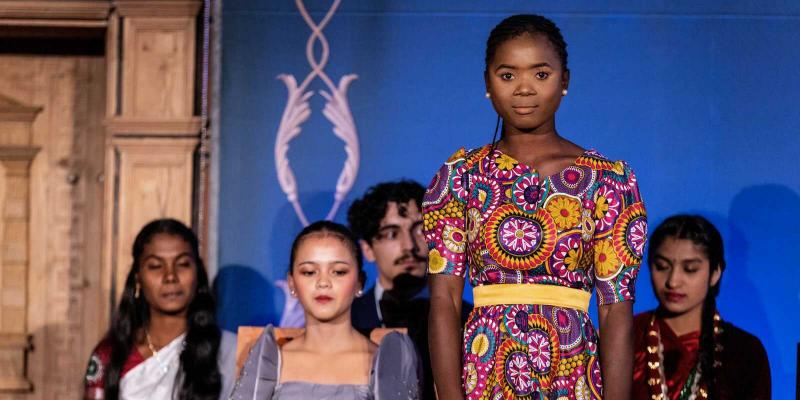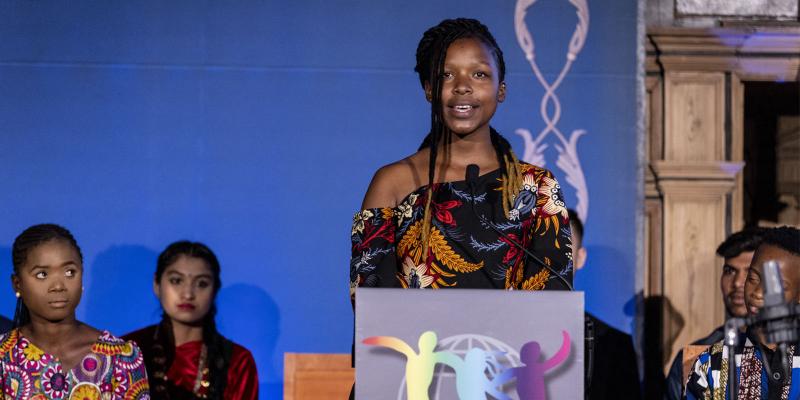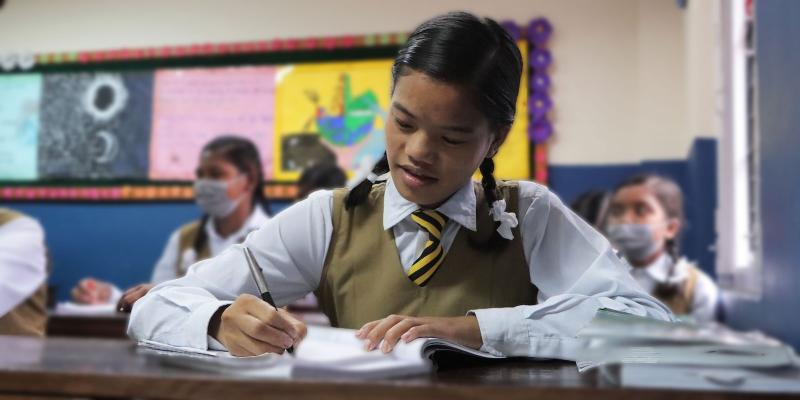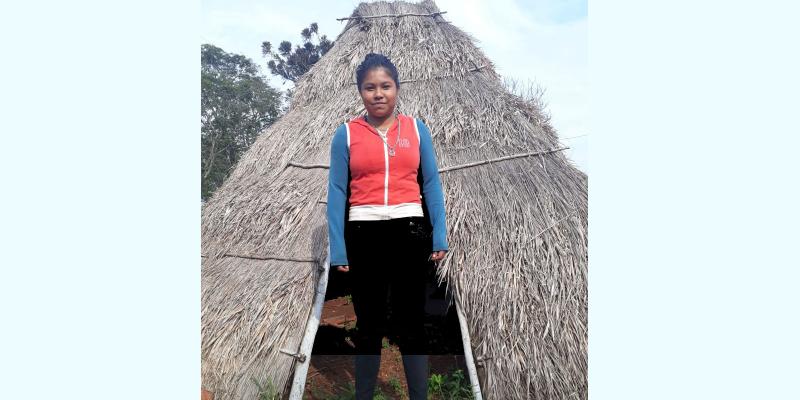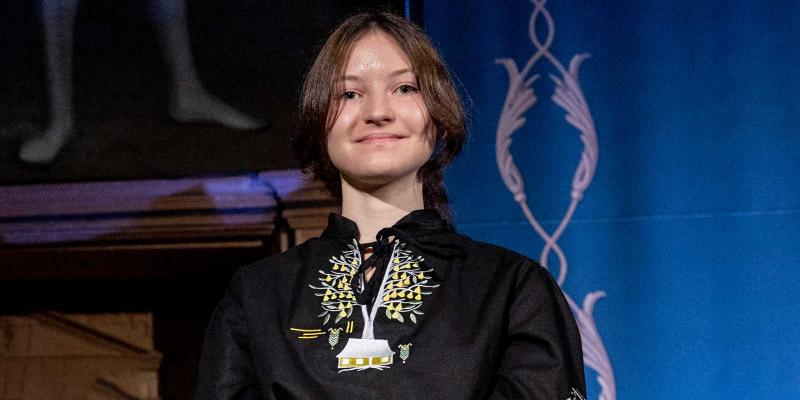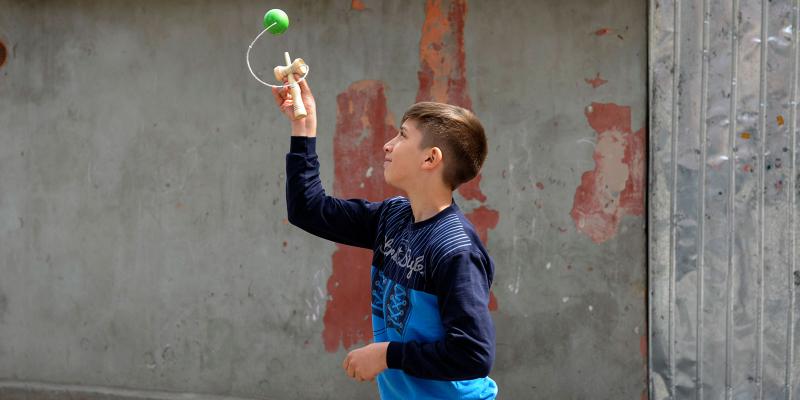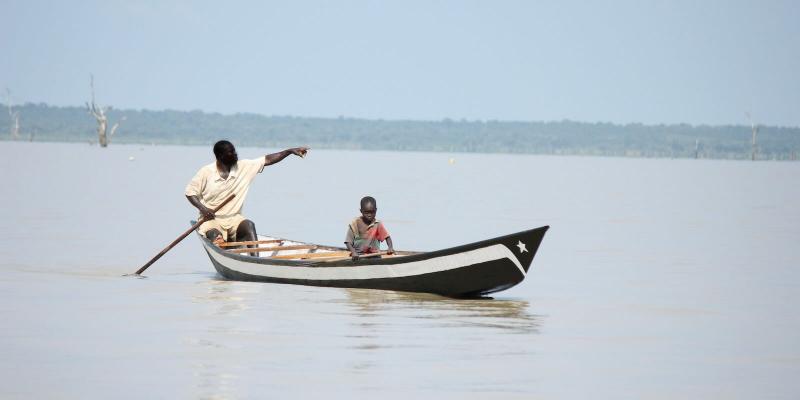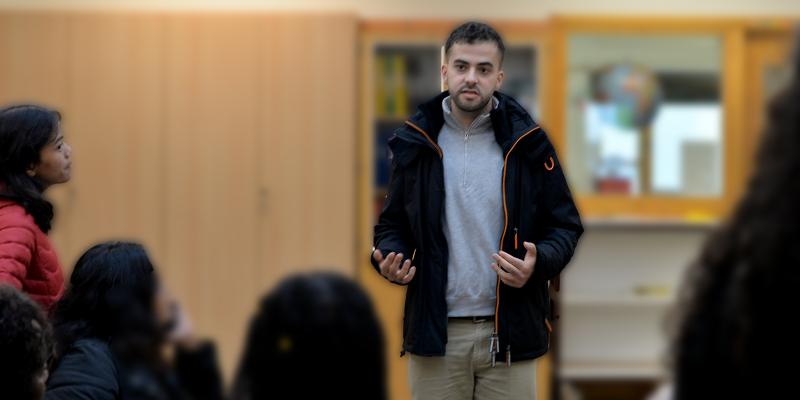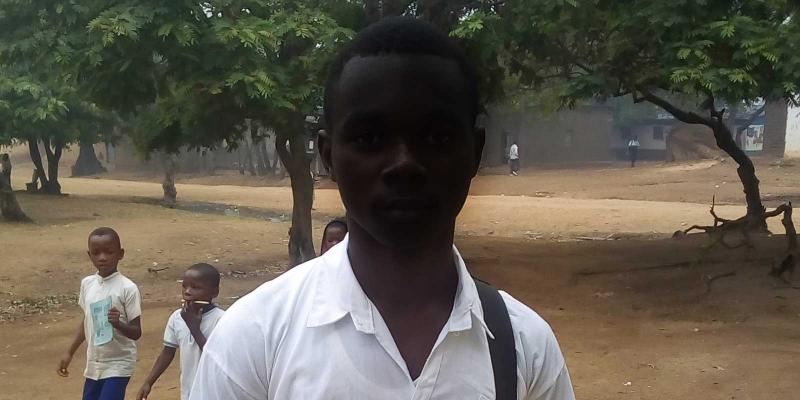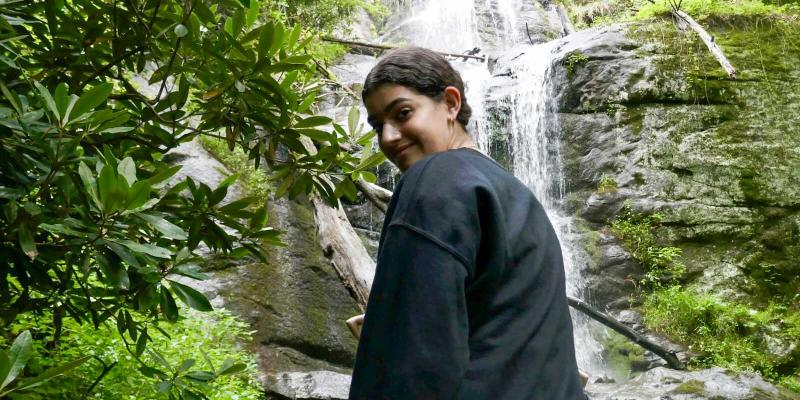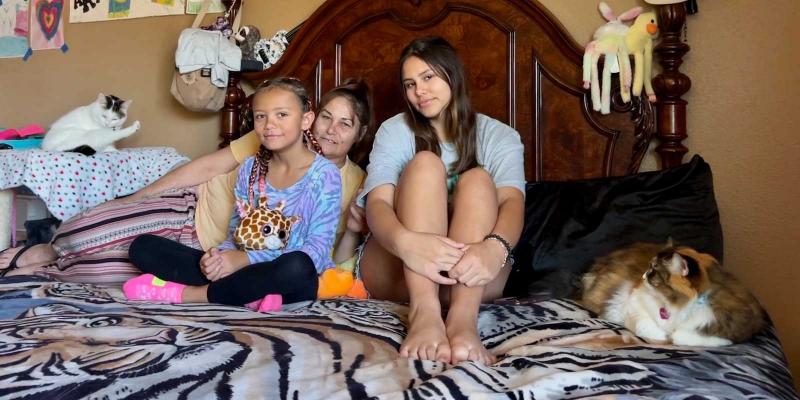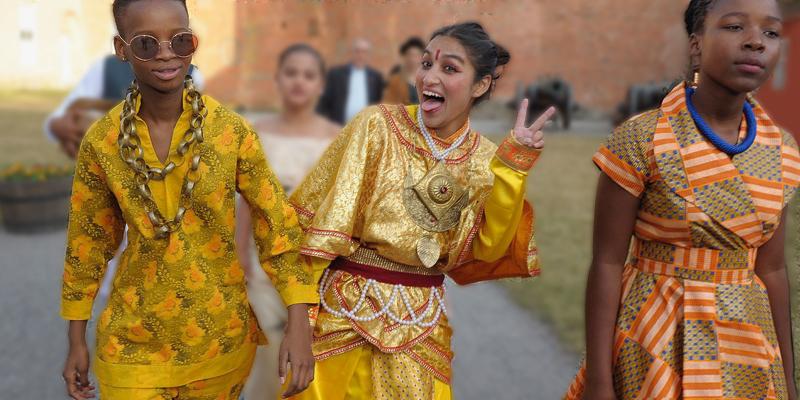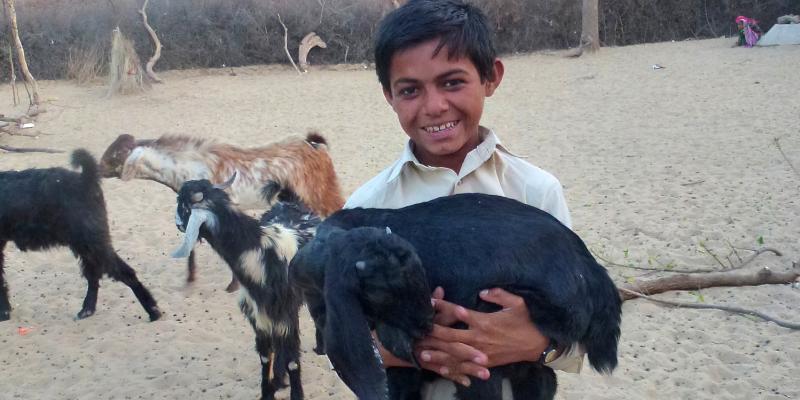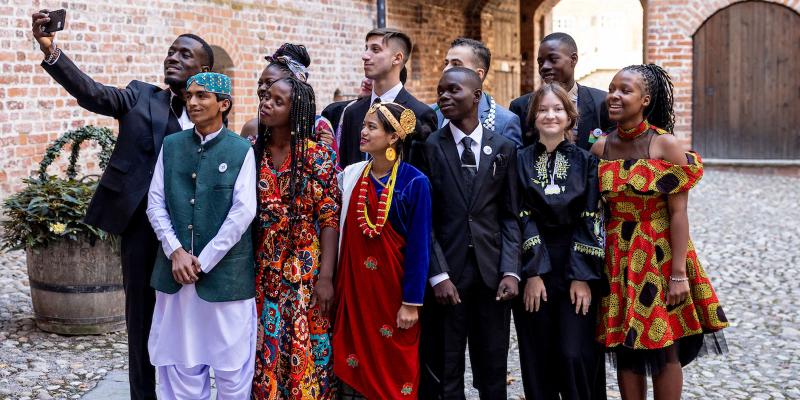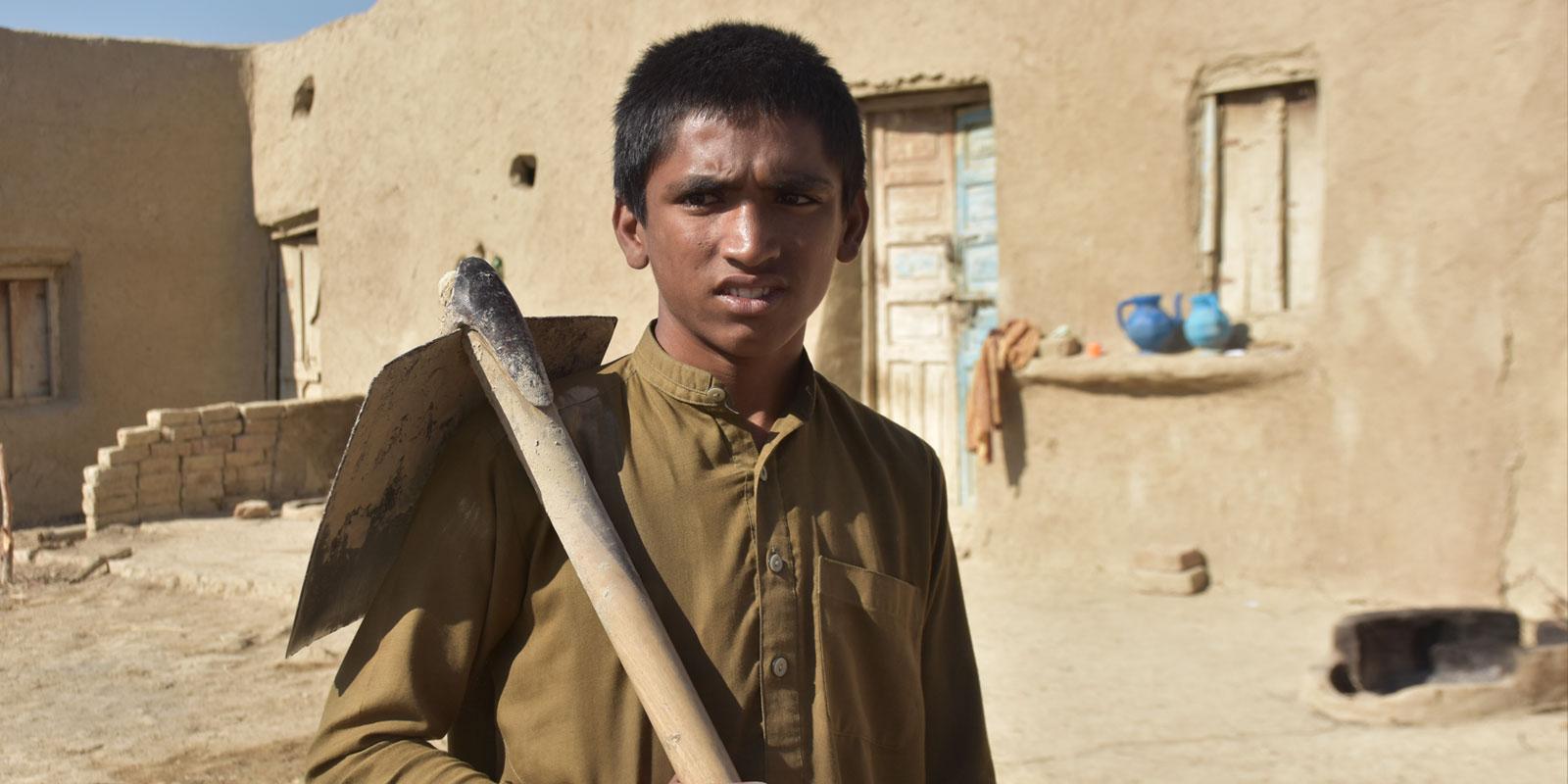
Tales of Rizwan’s bravery spread and gave other families the courage to send their children to school.
Four years later, Rizwan had to be rescued during the severe flooding, caused by climate change, that destroyed his family’s home and killed their animals.
“My grandfather Shamla was born a debt slave, because my great grandfather had taken out a loan from the landlord. That’s how you become a debt slave, and the landlord can then force the whole family to work in his fields. But when grandfather grew up, he managed to free our family from debt.
“The landlord wouldn’t let any children in the village go to school, so dad got to start school in grandma’s village. Grandfather also helped another boy in the village, Naveed, to start at the same school. Naveed returned to the village as an adult and started a school. When the landlord got to hear about it he came here in his jeep with armed men and said: ‘Shut down the school!’
Naveed was supported by the villagers, and the landlord was furious when he left. A year later, a man shot Naveed dead, right in front of the students. Many villagers were afraid then and wouldn’t let their children go to school any more. But my brother and I started at a school five kilometres away.”
Go and work!
“It was a year after the murder of the teacher, and I was ten years old. We’d been up since four and had gone into the forest first, because we don’t have a toilet. Then we fetched water before going to the mosque to pray. Once we’d eaten breakfast, bread with potato, we headed off to school.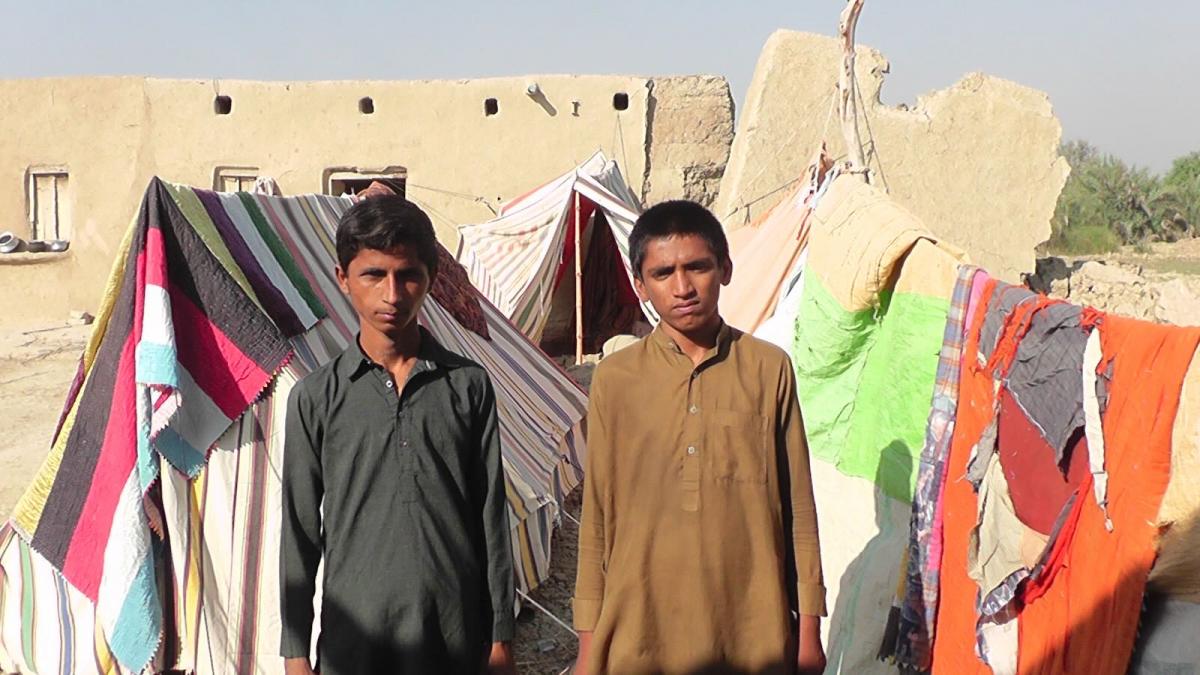
“Suddenly we were stopped by two men with rifles. My big brother didn’t hang around and ran off, but I wanted to know what they wanted. One of the men grabbed my arm and the other put his rifle to my head and said:
‘If you don’t work in the field, I’m going to put a hole in your head. You’re ruining other children for us.’
‘I will carry on going to school. Kill me if you want!’ I said. Several people gathered round us, so the men headed off and I continued on to school. When I got home, my brother asked: ‘Why didn’t you run? I thought they were going to kill you.’
“Dad and some others from the village went together to see the landlord and speak to him, but he pretended he didn’t know the men.”
Never free
“All the other families in our village, my uncle’s too, are debt slaves to the landlord. The reason the men threatened me and my brother was to get us to quit school, so the other children wouldn’t get any ideas about going to school.“The landlords are very cruel. They have often broken their workers’ arms or legs. If anyone protests, the landlord tells his foreman to shoot him. No one dares report him, because it’s dangerous. And there are no police here. People living in poverty have no rights. I don’t like it at all. They also mistreat women and girls.
“The landlord has thousands of hectares of land, but the debt slave families only have wheat and rice and very little money, so they can never be free of their debt.”Then the water comes...
“I was doing my homework before the sun went down. We have no electricity here. Mum had made bread with carrots for dinner.“I woke up in the middle of the night because I heard dad shouting. There was water everywhere. I thought the floodwater would kill us. The water continued to rise, and my uncle said we had to save our families. Mum cried and said:
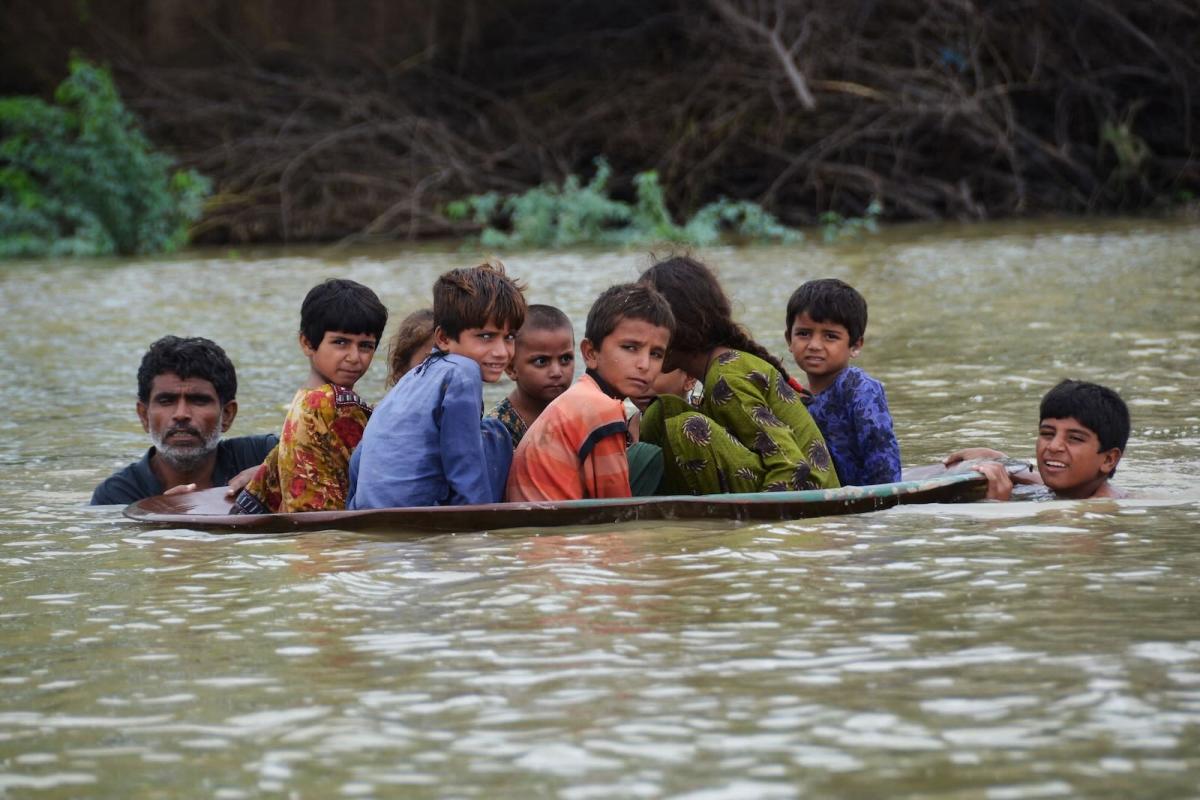
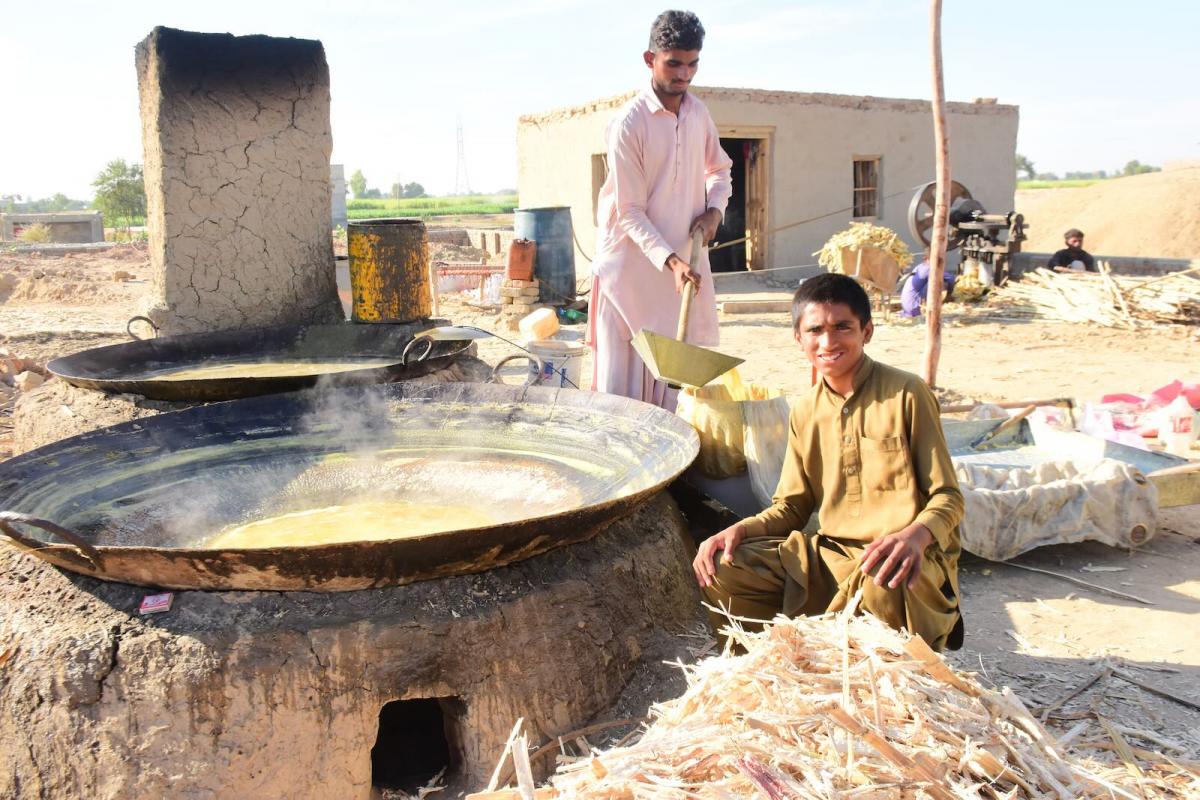
‘But how can we save everyone?’
“Dad asked us to help carry two huge tin dishes to the door. We use them to make sugar from sugarcane. We sat seven people in one dish and five in the other. Dad and uncle were able to wade through the water and pushed the dishes in front of them.
I watched our wall collapsing. I thought about our animals, and that our dog would also die. I cried many tears.”
Slept on the road
“Dad and uncle pushed the dishes with us sitting in them for four kilometres, to a road that is high up. For the first two nights we just sat and watched the water, or slept on the road. During the day it was hot under the sun, and at night we were bitten by large mosquitoes. We got two tents and some blankets, so on the third night we could sleep under cover. We stayed on the road for 22 days.“All the time I was longing to go back to school, and I remember to the day how long I had to wait: two months and eight days!
“We had 10 hens, 24 chickens, 3 goats, 2 lambs and 2 cows. When we returned home, they all drowned and disappeared in the floodwater.”
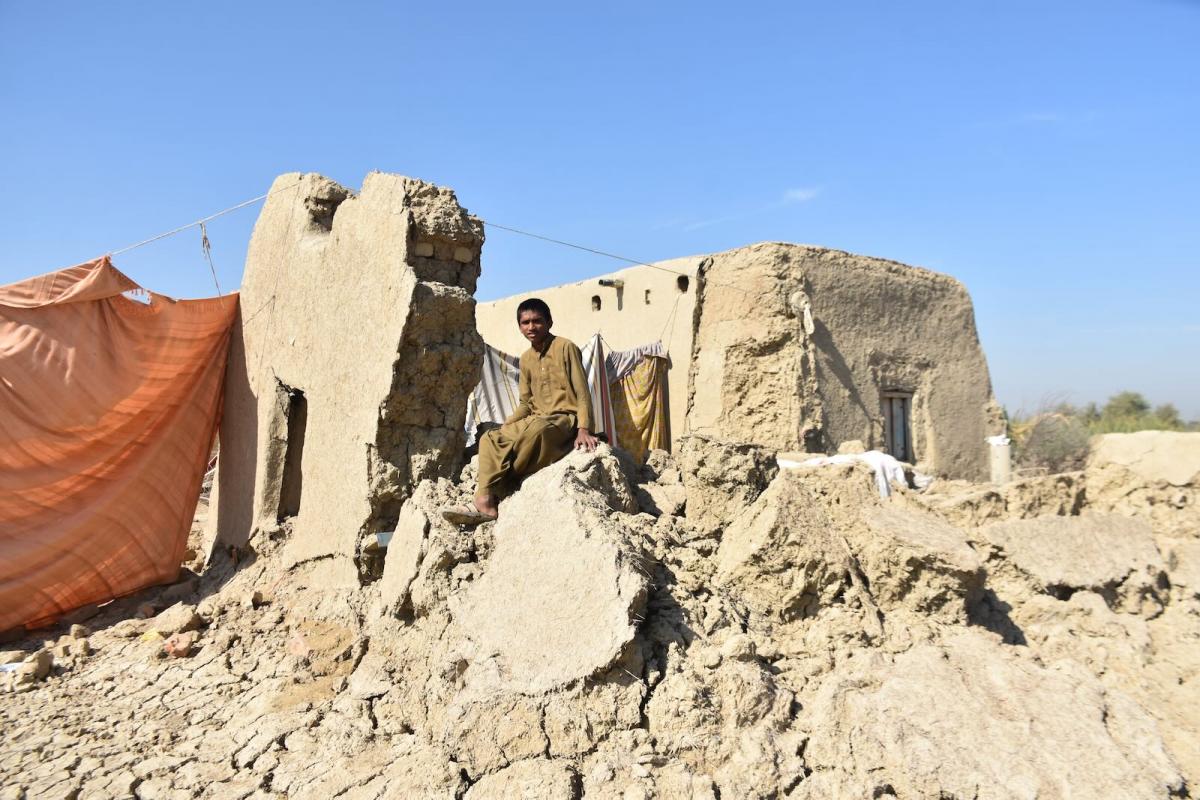
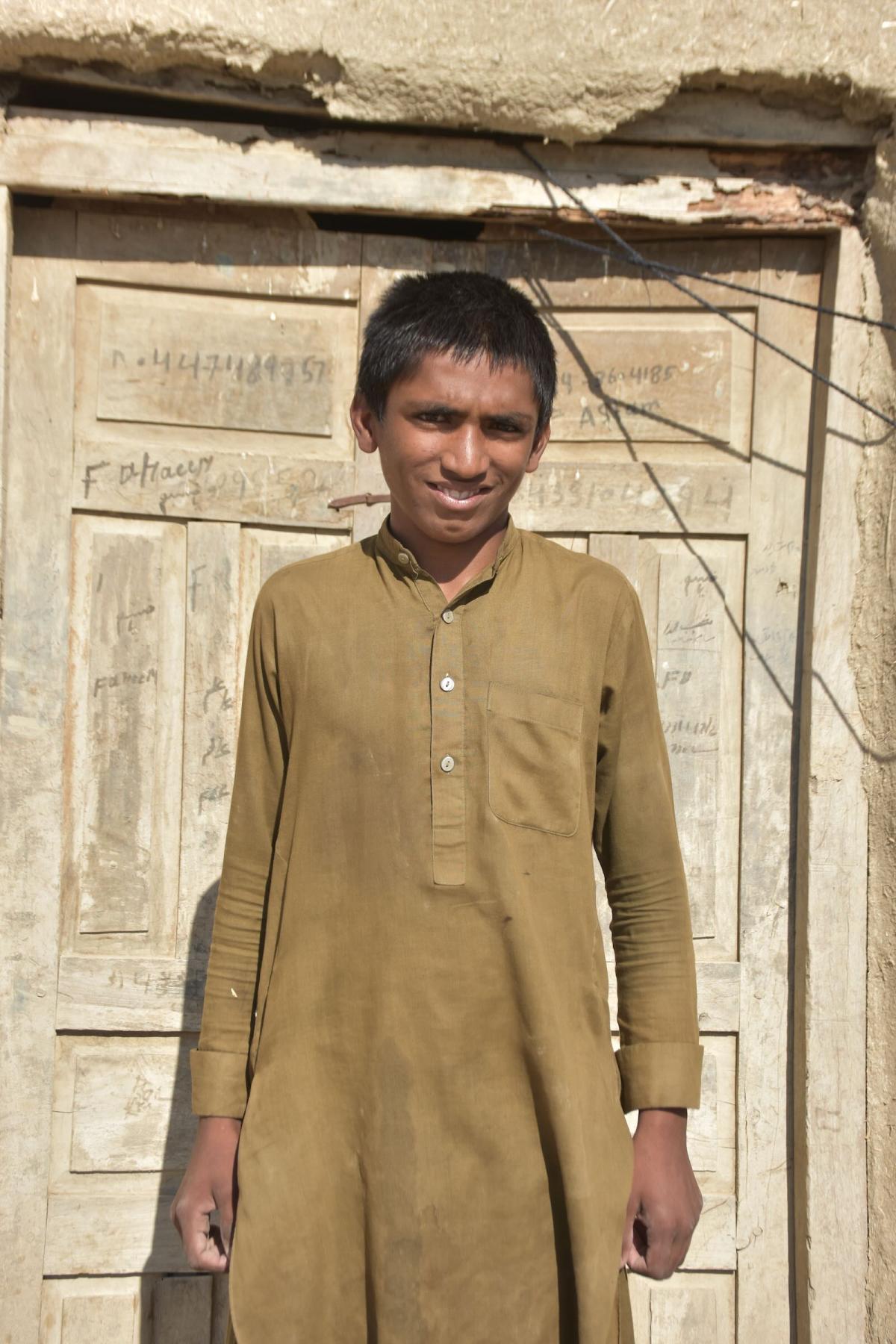
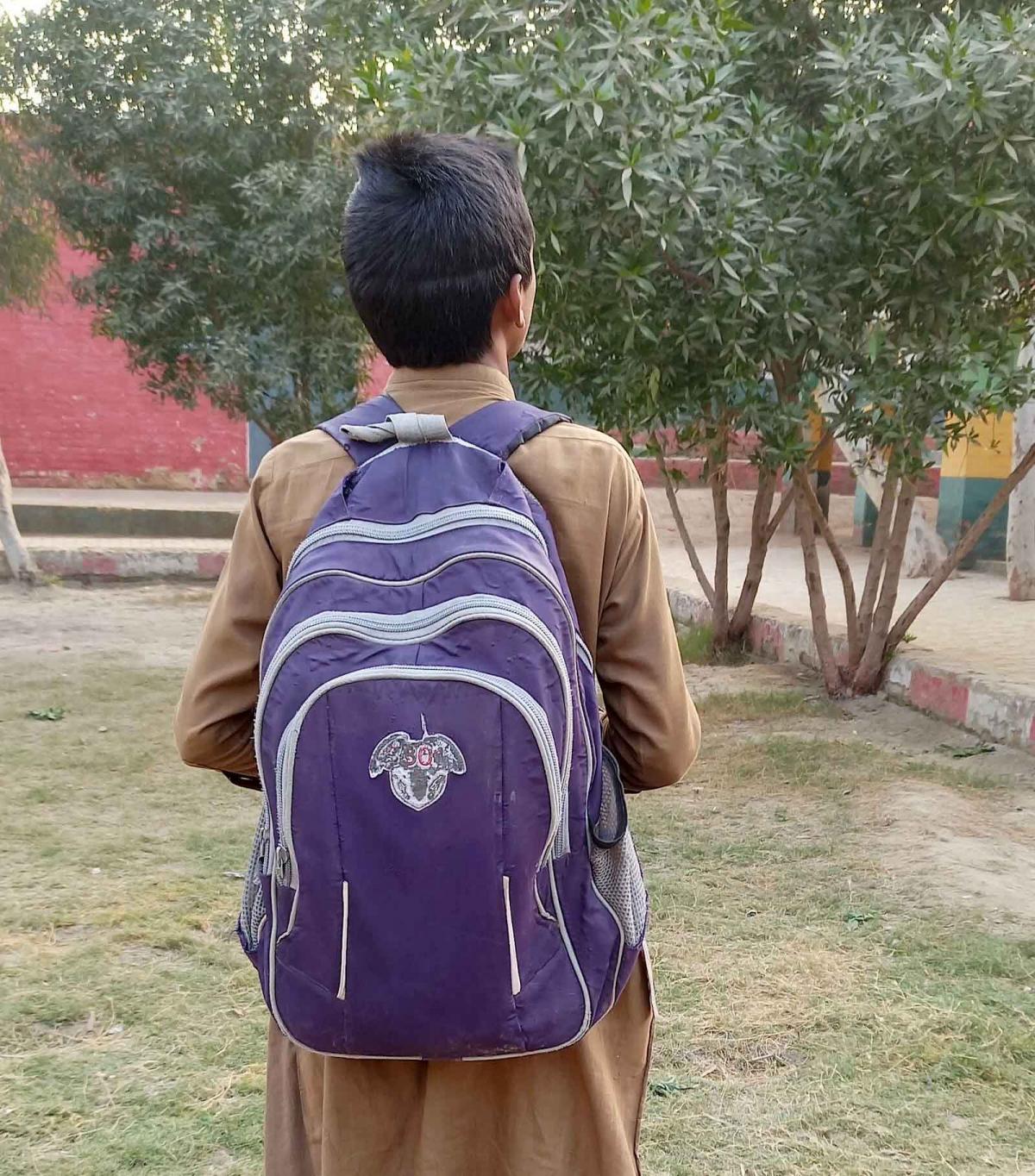
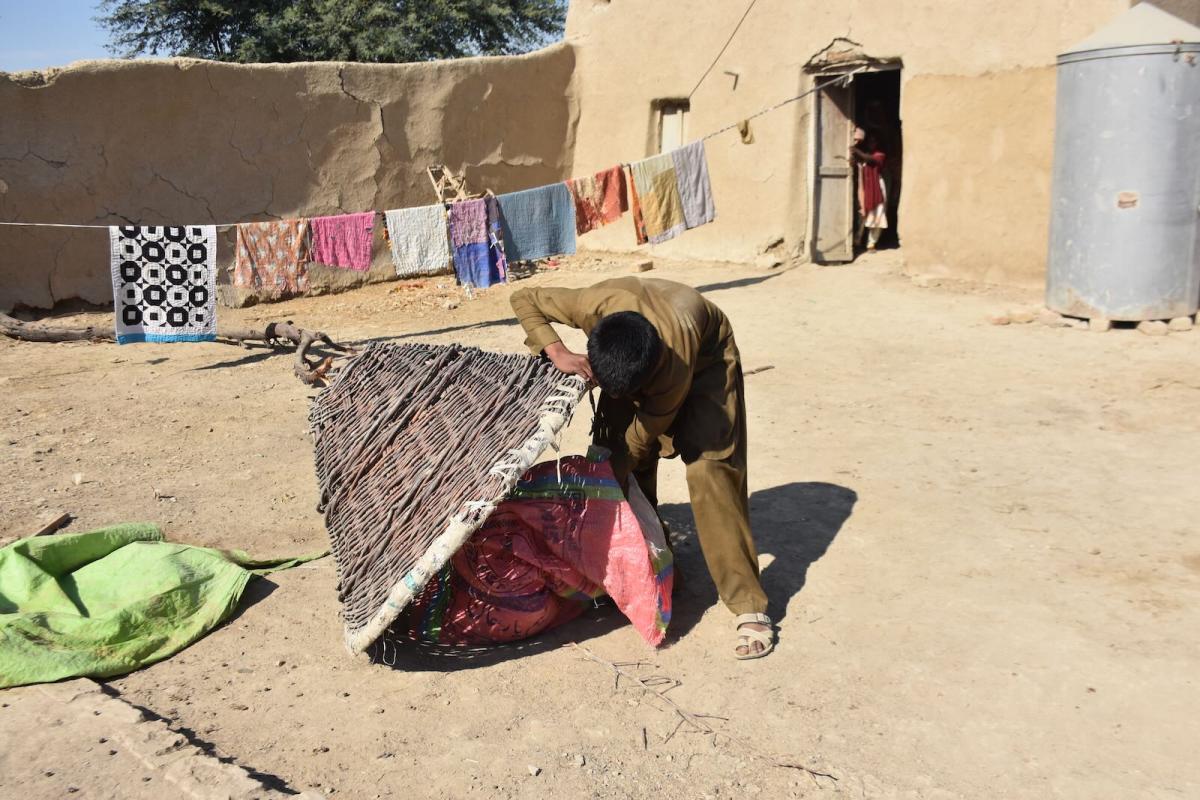
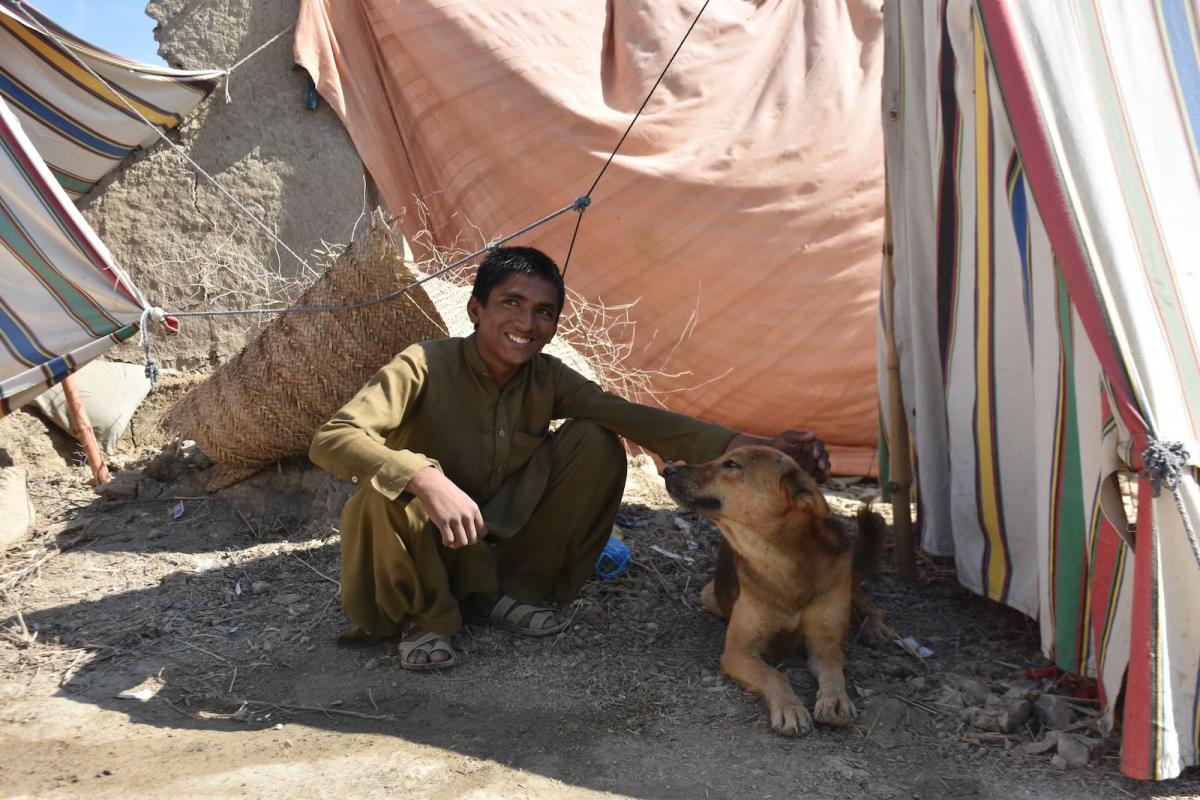
Facts: Glaciers melting
Pakistan is severely affected by climate change, which greatly impacts the glaciers in the Himalayan mountains. The 7,000 or so glaciers in Pakistan are melting fast. Pakistan is downstream from the Himalayas, which means it is affected by heavy flooding. In 2022, a third of the country was flooded, and the monsoon rain worsened the situation. The province of Sindh had 680 mm of rainfall in 24 hours.Rizwan, 14, Pakistan
Represents children whose rights are violated due to climate change and other environmental destruction. When I was taken to India.Going to school.
How landlords treat poor people.
The major flood.
To help my family have a good future
Related stories
Långgatan 13, 647 30, Mariefred, Sweden
Phone: +46-159-129 00 • info@worldschildrensprize.org
© 2020 World’s Children’s Prize Foundation. All rights reserved. WORLD'S CHILDREN'S PRIZE®, the Foundation's logo, WORLD'S CHILDREN'S PRIZE FOR THE RIGHTS OF THE CHILD®, WORLD'S CHILDREN'S PARLIAMENT®, WORLD'S CHILDREN'S OMBUDSMAN®, WORLD'S CHILDREN'S PRESS CONFERENCE® and YOU ME EQUAL RIGHTS are service marks of the Foundation.



